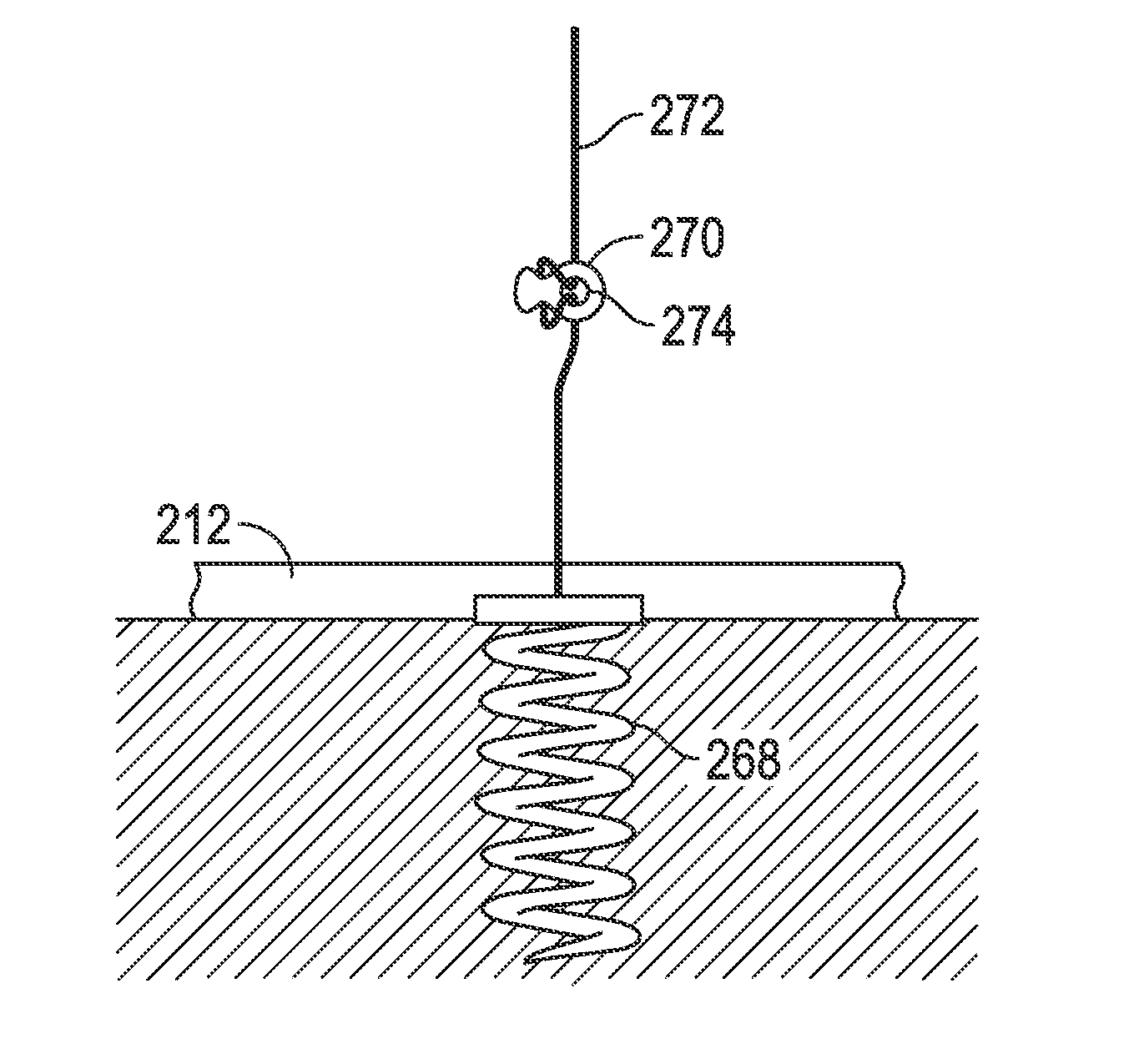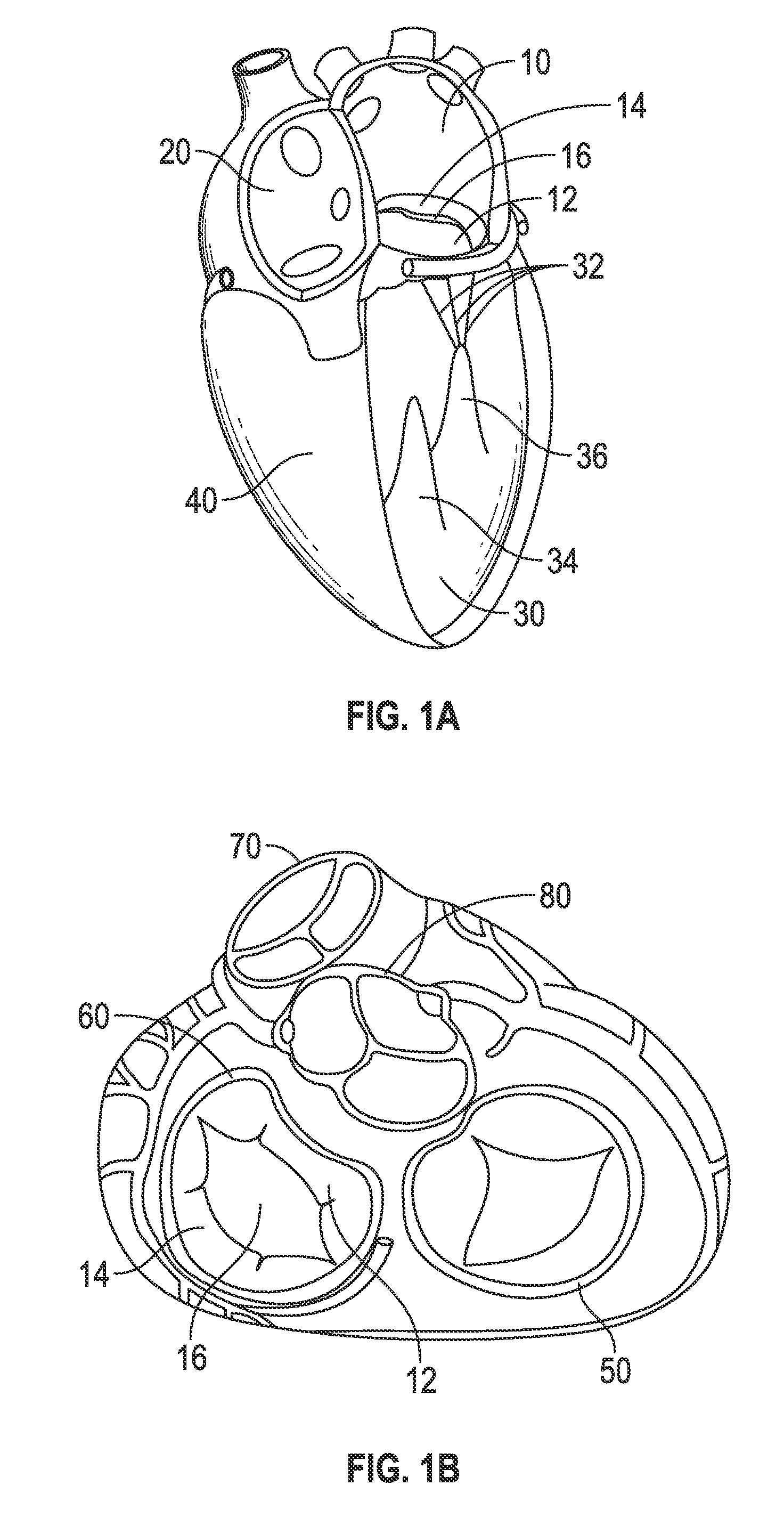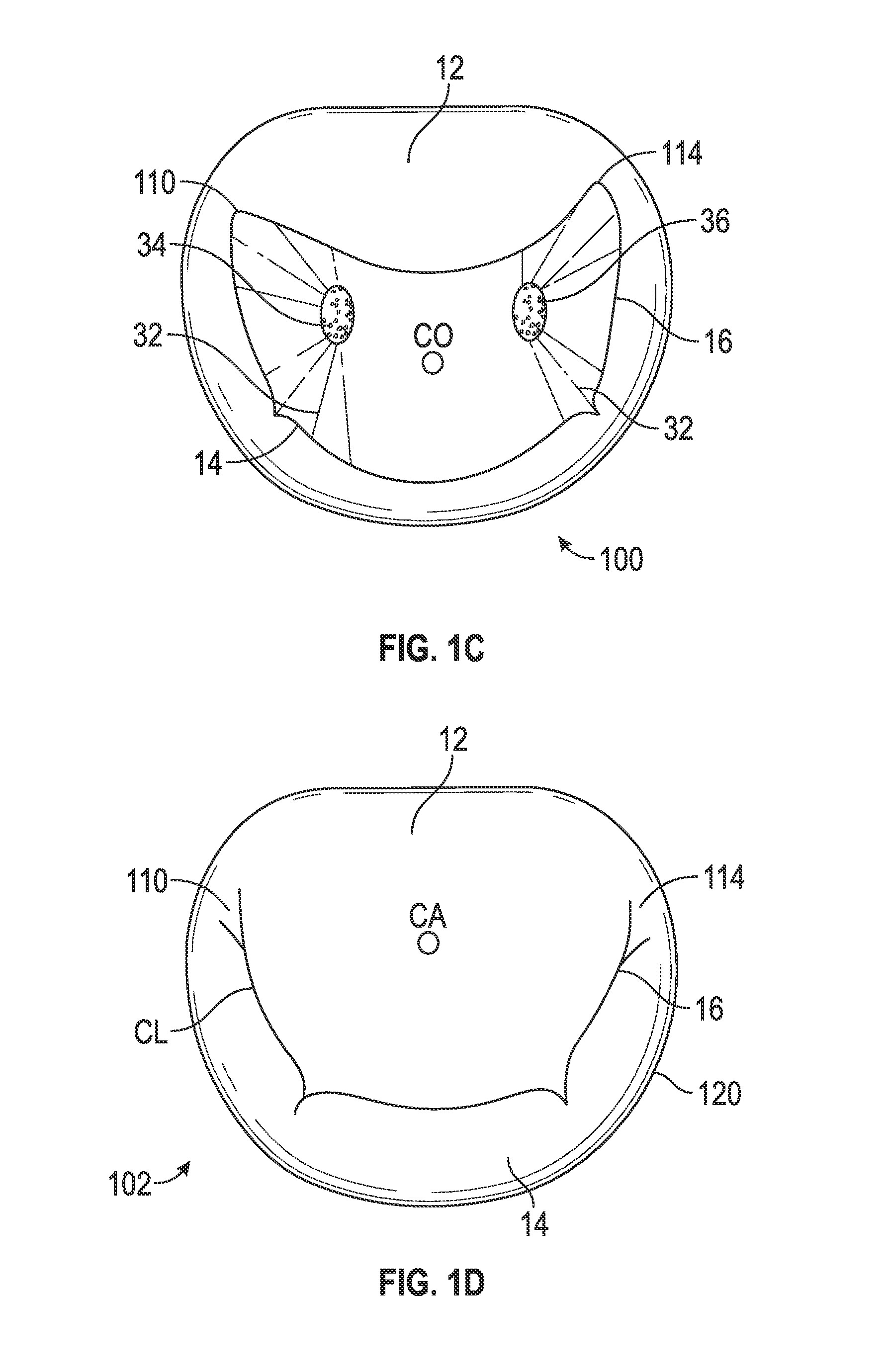Systems and methods for anchoring an implant
a technology of system and method, applied in the field of system and method for anchoring an implant, can solve the problems of significant number of patients who may not take medication regularly, medication can suffer from lack of patient compliance, and pharmacological therapies of mitral valve regurgitation may be inconvenien
- Summary
- Abstract
- Description
- Claims
- Application Information
AI Technical Summary
Benefits of technology
Problems solved by technology
Method used
Image
Examples
Embodiment Construction
[0072]The devices, systems and methods described within this disclosure, in some embodiments, are generally for the treatment of mitral valve regurgitation (MR). However, devices, systems, and methods as disclosed herein can also be utilized for other cardiac as well as non-cardiac indications, including those involving the mitral, aortic, tricuspid, and / or pulmonic valves. Mitral valve regurgitation occurs when the mitral valve does not prevent the backflow of blood from the left ventricle to the left atrium during the systolic phase. The mitral valve is composed of two leaflets, the anterior leaflet and the posterior leaflet, which coapt or come together during the systolic phase to prevent backflow. There are generally two types of mitral valve regurgitations, functional and degenerative regurgitations. Functional MR is caused by multiple mechanisms including abnormal or impaired left ventricular (LV) wall motion, left ventricular dilation and papillary muscle disorders. Degenera...
PUM
 Login to view more
Login to view more Abstract
Description
Claims
Application Information
 Login to view more
Login to view more - R&D Engineer
- R&D Manager
- IP Professional
- Industry Leading Data Capabilities
- Powerful AI technology
- Patent DNA Extraction
Browse by: Latest US Patents, China's latest patents, Technical Efficacy Thesaurus, Application Domain, Technology Topic.
© 2024 PatSnap. All rights reserved.Legal|Privacy policy|Modern Slavery Act Transparency Statement|Sitemap



